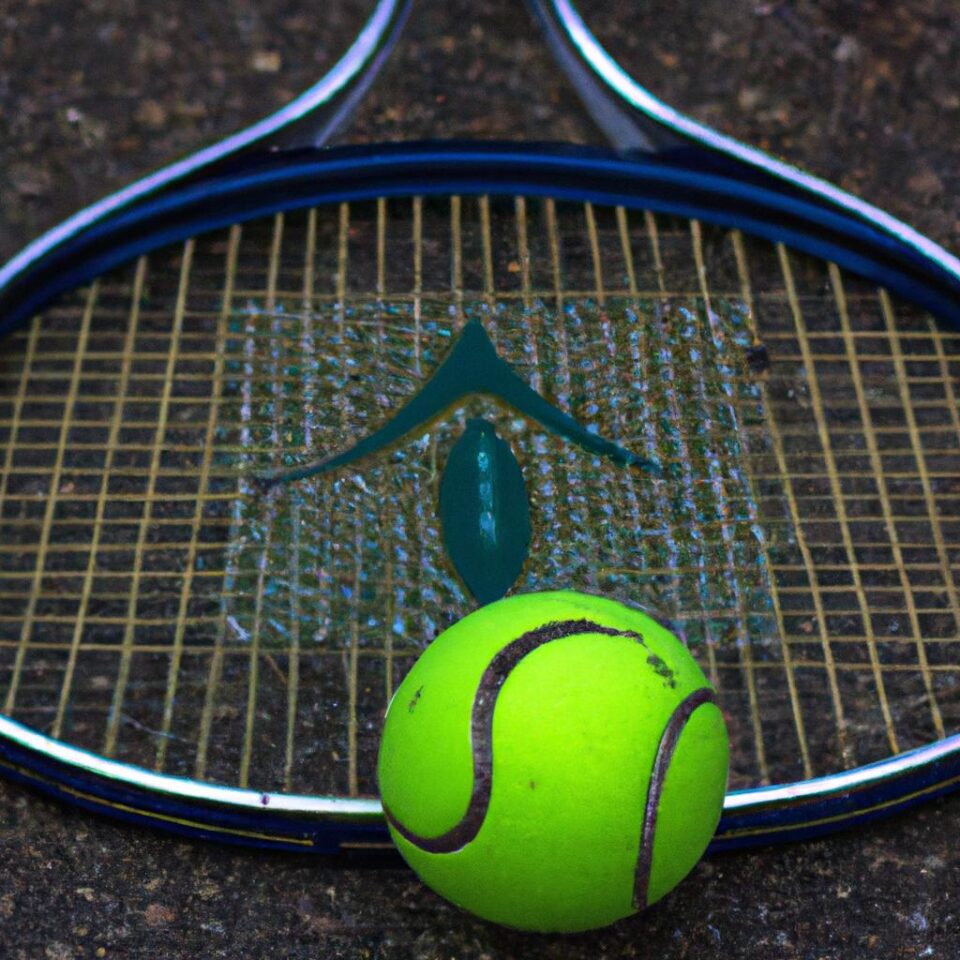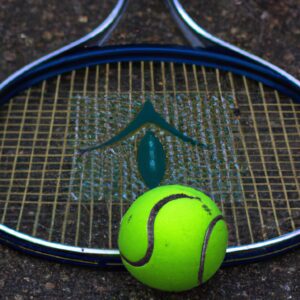Introduction to Sports and Personal Development
Sports have more value than just physical activity. Playing sports can also teach many valuable life skills, including teamwork, communication, problem-solving, and resilience. This guide will explore the different ways that sports can contribute to personal development, as well as provide some helpful resources for readers to continue learning.
Defining Sports and Competition
Sports are activities that involve physical exertion with the primary objective of competing for entertainment and fun. They can involve individual or team participation and may range from playing a game of catch to competing at a professional level. Sports can help build strength, endurance, and teamwork while providing enjoyment.
Competition is an essential part of sports. It provides a sense of accomplishment for players which can motivate them to strive for their personal best. Competitive sports can teach players how to manage their emotions in difficult situations, set goals, and develop a competitive mindset.
Competition also helps to create a sense of camaraderie between players as they work together towards a common goal. It can bring about a sense of pride and belonging as players work together and cheer each other on. Competing against others can help players learn how to respect themselves and those they play against.
Physical Benefits of Sports and Competition
When it comes to physical health, taking part in sports and competition can offer a range of important benefits. Not only does physical activity help to improve overall health, but sports can also help to form healthy habits that will last a lifetime.
Regular physical activity helps to reduce the risk of major illnesses such as heart disease and diabetes. It can also improve muscle strength, boost aerobic capacity, and help you maintain a healthy weight. Studies have even found that exercise can reduce the symptoms of depression and anxiety, and can increase self-esteem.
In addition to these benefits, playing sports is a great way to learn about healthy habits and nutrition through team coaches and mentors. When we’re part of a team, we learn how to fuel our bodies for optimal performance. We understand that proper nutrition and hydration are vital for peak performance, and that eating a balanced diet can help us reach our top potential.
Not only do sports teach us about healthy habits, but they also encourage us to stick with them. When we make smart decisions about our physical health, we can continue to experience the joys of playing our sport well into adulthood. We’ll also gain the personal satisfaction of knowing that we’re taking care of our bodies and doing something that makes us happy.
Mental Benefits of Sports and Competition
Playing sports and participating in competitions can benefit us mentally as well as physically. One of the most important psychological benefits is increased confidence and resilience. When we push our physical boundaries through exercise, it can help to grow our levels of self-belief and foster a more positive outlook on life.
Participating in competition also encourages us to confront challenging situations head-on. We can learn to trust ourselves and make decisions without fear of failure. In the process, we become more confident and resilient when facing stressful or difficult situations.
Engaging in competition can also help us develop a greater sense of purpose and direction. By being part of something larger than ourselves, we can discover a greater passion for succeeding and achieving our goals.
Finally, interacting with teammates and opponents teaches us candidness, empathy, and collaboration. Through sports and competition, we can build strong, supportive relationships both on and off the field.
Teamwork Skills
Playing on a sports team has immense benefits, with the most important being learning how to work together as a unit. Team sports involve more than one person, and require each individual to be working towards the same goal. This helps to foster cooperation between teammates, as they must work together in order to succeed.
Another skill that teams can teach is leadership. Without a leader, the team will struggle to remain focused and organized. A leader should be able to provide guidance and direction to their teammates, while also listening to input from others. Being in a leadership role teaches responsibility and confidence, both of which are essential life skills.
Finally, communication is key for any team. Teams must communicate both verbally and nonverbally in order to function properly. Verbal communication involves communicating with one another, while nonverbal communication includes subtle cues such as body language and facial expressions. Learning how to communicate effectively can benefit an individual in many aspects of life.
Problem-Solving Skills
Competing in sports can help develop problem-solving skills that can be used in a variety of scenarios. Sports demand creative thinking and quick decision making in order to succeed, and this teaches children invaluable skills. Through playing sports, children can learn to analyze their environment and find solutions to problems.
Sports such as tennis, basketball, and football require players to stay alert for the entire match. For example, when facing an opponent in a game of tennis, players must react quickly and determine their best course of attack. This type of cognitive exercise helps to sharpen problem-solving skills.
In team sports, children often have to work together to figure out a winning strategy. This encourages collaboration, an essential skill for problem-solving. With each decision they make, children can learn to see how their actions affect the outcome of the game, which can be beneficial not only on the field but also in life.
Playing sports can help children better understand their environment, recognize opportunities, and come up with innovative solutions. This type of creative problem-solving can help children in the future, as they often encounter difficult situations in school or work and must develop ways to overcome them.
Communication Skills
Communication is an essential part of playing sports. Verbal and nonverbal communication can make or break a team, and the same can be said for almost any situation. While playing sports, athletes must be able to communicate their needs and desires to their teammates, opponents, and referees.
Just like in a game, communication is key to success in our everyday lives. We use both verbal and nonverbal cues to express how we feel and what we want. Being able to effectively communicate can help us get what we want out of a conversation, and also build strong relationships.
Sports can help us learn important communication skills. We must learn to effectively speak and listen. We also need to understand how body language and eye contact are important in communication. These skills are beneficial for all aspects of our lives, from our personal relationships to our professional ones.
Playing sports not only teaches us the basics of communication, but it also teaches us how to handle difficult conversations. In any sport, there are bound to be moments of tension. This tension requires us to think quickly and respond in a productive way. Learning how to effectively communicate in these difficult situations can help us become more confident individuals.
Sports provide us with the perfect environment to practice our communication skills. We can learn to effectively speak and understand different perspectives, as well as how to engage in constructive dialogue. Ultimately, these skills can help us become better communicators in all aspects of our lives.
Conclusion: The Importance of Sports in Personal Development
Sports and competition can have a profound impact on personal development, teaching players the importance of cooperation, communication, resilience, and problem-solving. Physical activity has also been proven to improve overall health, helping to form healthy habits that will stay with players for life. By combining physical activity with competition, athletes can gain invaluable life skills that will help them in all aspects of life.
Sports are not just about winning, but about learning to overcome challenges and getting better every day. By pushing oneself to their fullest potential, athletes can develop confidence and determination, teaching them valuable lessons that can be applied to any situation. For these reasons, sports remain an indispensable part of personal development.
Resources
For readers who are looking for more information about sports and personal development, there are plenty of resources available to check out. Here are just a few suggestions that may be useful:
- The U.S. Department of Health and Human Services provides information on the physical benefits of sports for both children and adults.
- The Mayo Clinic has an article on the emotional and mental health benefits of sports.
- The American Psychological Association has a guide to building team communication skills in sports.
- The International Olympic Committee has tips for problem-solving skills in sports and daily life.
These are just some of the many online resources available to help readers understand the important role that sports and competition can play in personal development.
Final Thoughts on the Role of Sports in Personal Development
Sports and competition can provide immense benefits to personal development, including physical, mental, and social skills. It encourages teamwork, problem-solving abilities, communication strategies, and much more. By participating in sports and embracing competition, individuals can gain confidence, learn resilience, and discover their passions.
Sports open up opportunities to learn valuable life lessons and form healthy habits. They also help to build relationships and foster a sense of community. It is important to maintain balance between sports and other aspects of life, such as education, work, and relationships. But overall, sports can be incredibly beneficial for personal growth and development.
FAQs about Sports and Personal Development
Many readers may have questions about the life skills learned through sports and competition. Here are some common ones along with their answers:
- What life skills can I learn through sports? Sports can teach a lot of different life skills, such as resilience, problem-solving, communication, teamwork, and leadership.
- Do I need to be good at sports to benefit from them? Not necessarily. You don’t need to be the best to improve your life skills—just participating is enough. The same goes for competing in sports.
- How do I get involved in sports?Check out your local sports clubs or community centers. They often have teams or leagues for all levels, allowing you to participate no matter your skill level.
These are just some of the many questions that readers may have about sports and personal development. If you need more information, take a look at the resources section for further reading.
Outro
Everyone can benefit from participating in sports and competition. Not only do they provide physical health benefits, but they also encourage the development of mental and emotional skills that are essential for personal growth. Sports and competition help people understand the power of cooperation and collaboration, problem-solving, and communication. Developing these skills through sports is a rewarding and fun experience that can help you succeed in all areas of your life.
While you may not have the time or opportunity to participate in organized sports, there are still ways to practice and develop these skills. Whether you’re playing a sport or participating in other activities with friends or family, such as board games or outdoor adventures, you can use these experiences to hone your competency in these life skills.
We hope this guide has provided an insight into how sports and competition can be beneficial to personal development. Now that you have learned about the many life skills that can be acquired through sports, we encourage you to take what you’ve learned and apply it to your own life.
comments: 0

